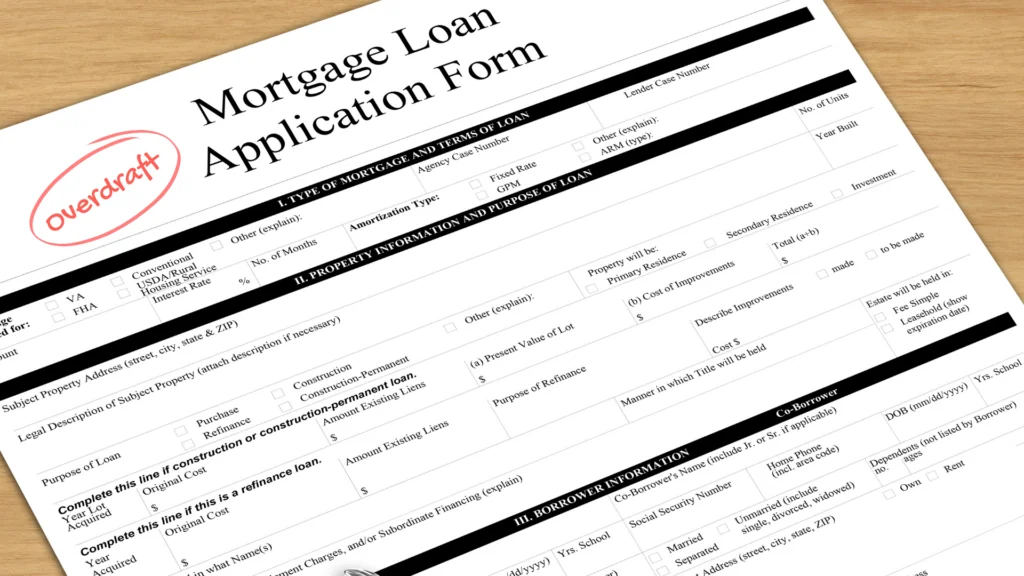- What Is a 5 Times Salary Mortgage?
- How Much Can You Borrow with a 5 Times Salary Mortgage?
- How To Get a Mortgage 5 Times Your Salary?
- Which Lenders Offer 5 Times Salary Mortgages?
- Can You Get a Mortgage 5x Your Salary with a Low Deposit?
- Can You Get a Mortgage 5x Your Salary with Bad Credit?
- Can You Get a Mortgage 5x Your Salary if Self-Employed?
- Can I Borrow More Than Five Times My Salary?
- Key Takeaways
- The Bottom Line
Mortgages 5 Times Salary: Everything You Need To Know

Need more space for your growing family? Maybe you want a bigger kitchen, a playroom for the kids, or an extra bedroom so everyone has their own space.
As your family grows, finding the right home can feel essential.
But if your budget doesn’t stretch far enough, a 5x salary mortgage could give you the extra borrowing power you need.
With the right mortgage, you can move into a home that suits your needs now and in the future.
Let’s see if a 5x salary mortgage is right for you, and how it can help you find your dream home.
What Is a 5 Times Salary Mortgage?
A 5 times salary mortgage is exactly what it sounds like: a mortgage where the lender offers to loan you up to five times your annual income.
For example, if you earn £50,000 a year, a 5 times salary mortgage could potentially let you to borrow £250,000.
This type of mortgage can be useful if you’re looking to buy a more expensive property or need a larger loan to get the home you want.
However, not all lenders offer this.
Many limit their loans to 4 or 4.5 times your salary to reduce their risk, so you’ll often need a strong financial profile to secure a 5 times salary mortgage.
How Much Can You Borrow with a 5 Times Salary Mortgage?
If you’re eligible for a 5 times salary mortgage, the amount you can borrow is simple to calculate: multiply your annual salary by five.
Here’s an example:
| Annual Salary | 5 Times Salary Mortgage |
| £20,000 | £100,000 |
| £30,000 | £150,000 |
| £60,000 | £250,000 |
| £80,000 | £375,000 |
| £100,000 | £500,000 |
These numbers give you a rough idea. How much you can actually borrow depends on things like:
- Your credit score
- How much money you already have for a deposit
- Your other bills
- Your overall money situation
Different lenders may also calculate your maximum loan differently, especially if you have extra income like bonuses or rental income.
Use our mortgage affordability calculator to get a more accurate estimate based on your income.
How To Get a Mortgage 5 Times Your Salary?
To get a 5 times salary mortgage, you’ll need more than just a good income—you’ll need a solid financial game plan.
This means ticking off a lender’s checklist, such as:
- Income. Your salary is the starting point, but some lenders require a minimum income, like £50,000, for a 5 times salary mortgage. If you’re applying with someone else, combining your incomes could make it easier to qualify.
- Deposit Size. A bigger deposit works in your favour. While you might qualify with a 5-10% deposit, having 15-20% can improve your chances and get you better interest rates.
- Credit History. Your credit score is important. Lenders prefer borrowers with good credit. If you have a poor credit history, you may need a larger deposit or to meet other conditions.
- Age. Lenders may be cautious if your mortgage would extend into retirement. You might need to show how you’ll afford payments later in life, such as through pension income.
- Affordability Checks. Lenders look at your monthly expenses, including debts and bills, to ensure you can afford the repayments, even if interest rates go up. They often use a debt-to-income (DTI) ratio, and most prefer it to be below 43%. If your DTI is higher, you might need to pay off some debts or increase your income first. Check your DTI ratio using this calculator.
- Employment Status. Your job type and stability matter. Full-time, permanent roles are seen as lower risk, while contract workers or the self-employed might face more checks.
- Supplementary Income. If you have extra income from bonuses, rent, or investments, some lenders may consider this. Providing proof can strengthen your application.
- Type of Property. The property you want to buy can affect the lender’s decision. Non-standard properties might be seen as higher risk, which could limit how much you can borrow.
Remember, this is a general guide of what lenders look for.
Every lender is different. It’s best to chat with a mortgage expert to find the right one for you.
To speed up the process, be ready to provide detailed documents like payslips, bank statements, tax returns if you’re self-employed, and proof of any additional income.
Which Lenders Offer 5 Times Salary Mortgages?
In the UK, several lenders offer 5 times salary mortgages, especially if you meet their stricter criteria. Some well-known lenders include:
- Barclays. Offers 5 times salary mortgages for combined incomes over £45,000, with an LTV below 85%.
- Halifax. Known for offering this level of lending for incomes over £75,000, provided the loan amount doesn’t exceed £750,000 and the LTV is between 75.01% and 85%.
- Skipton Building Society. They may offer up to 5 times salary mortgages for applicants with a combined income over £80,000 and an LTV (loan-to-value) ratio below 90%.
- TSB. This lender typically offers 5 times salary mortgages for incomes over £50,000, with an LTV of less than 85%.
These criteria can change, so it’s always worth checking the latest details or consulting a mortgage broker who has up-to-date information on lenders that might offer you a 5 times salary mortgage.
Can You Get a Mortgage 5x Your Salary with a Low Deposit?
Yes, you can, but it’s more challenging.
A low deposit means more risk for the lender, and asking for a high-income multiple on top of that might make some lenders cautious.
If you’re looking for a 5 times salary mortgage with just a 5% deposit, you’ll likely need an excellent credit score and a strong financial profile.
Some lenders might still offer it if you meet other criteria, but having a bigger deposit can get you better deals. It might be worth saving a bit more if you can.
Can You Get a Mortgage 5x Your Salary with Bad Credit?
Yes, you can, but it’s trickier and your options might be limited.
Lenders are cautious about offering high-income multiples to those with credit issues because it’s seen as risky.
If you’ve had missed payments, defaults, or even bankruptcy, you might need to go to a specialist lender who’s more flexible.
But be warned, these mortgages usually cost more.
You’ll pay higher interest rates and bigger monthly bills. You might also need to save up a bigger deposit, up to 25% of the house price.
To improve your chances, try saving a bigger deposit, paying off some debts, and making sure your credit accounts are in good shape.
It’s also worth chatting with a specialist mortgage broker who can help you find the right lenders and guide you through the process.
Can You Get a Mortgage 5x Your Salary if Self-Employed?
Yes, you can get a 5 times salary mortgage if you’re self-employed, but it might take a bit more effort.
Lenders usually like to see 2-3 years of accounts showing consistent income. This reassures them that you can afford the mortgage long-term.
If you’ve been self-employed for less than a year, your options might be more limited, but it’s not impossible.
Some lenders might still consider you, especially if you have a strong credit history and a good deposit.
Can I Borrow More Than Five Times My Salary?
The answer is yes, but it’s not easy.
Some mortgage lenders will let you borrow 5.5 or even 6 times your salary, but they’re usually picky about who they lend to.
People with top jobs like doctors, lawyers, and executives are more likely to get these bigger loans.
To get one of these mortgages, you’ll need a bigger deposit, a perfect credit score, and you might have to earn a certain amount. It’s tricky stuff!
If you think you might want to try for a mortgage this big, it’s a good idea to talk to a whole-of-market mortgage broker. They can tell you exactly what you need to do and find the best deal for you.
Key Takeaways
- A 5 times salary mortgage can help you afford a pricier home, but not all lenders offer it.
- Lenders that do offer 5 times salary mortgages usually want a good income, a bigger deposit (15-20%), and a solid credit score.
- If you have a low deposit (5-10%), you might still qualify, but you’ll need a great credit score and stable finances.
- Bad credit makes it harder to get a 5 times salary mortgage, and you’ll likely face higher interest rates and need a bigger deposit.
- Self-employed? You can still get a 5 times salary mortgage, but lenders prefer to see 2-3 years of steady income.
- Some lenders might offer more than 5 times your salary, but this is usually for high earners with excellent credit and a hefty deposit.
The Bottom Line
If you’re struggling to afford your dream home with a regular mortgage, borrowing five times your salary might be an option. It’s not easy to get, but it’s possible.
Maybe you earn a good salary, have a big deposit, or are buying with someone else. There are choices out there.
Because these mortgages are tricky to find and have strict rules, using a mortgage broker can be a good idea. They know where to look and can help you get the right deal.
It’s important to remember that a bigger mortgage means bigger payments. So, check your finances carefully and get expert advice before you decide.
To make the right choice and avoid any hassle, get in touch with us. We’ll find you a top mortgage broker to guide you through your options.
Get Matched With Your Dream Mortgage Advisor...

Frequently asked questions
Is it harder to get a 5 times salary mortgage if I’m self-employed?
It can be more challenging, especially if you’ve been self-employed for less than 2-3 years. However, many lenders are willing to consider self-employed applicants, particularly if they have a strong financial profile.
Should I use a mortgage broker for a 5 times salary mortgage?
Using a broker is highly recommended, as they can help you navigate the complex criteria, identify suitable lenders, and avoid application rejections that could harm your credit score.
Can I get a mortgage 5x of my salary as a retiree?
Yes, you can get a 5x salary mortgage as a retiree, but it might be a bit harder. Lenders will want to make sure you can afford the repayments on your pension income.
They’ll look at your retirement income, including state pensions, private pensions, and any savings or investments.
Your age and the length of the mortgage term will also matter—most lenders prefer the mortgage to be paid off before you reach a certain age, usually between 70 and 85.
To boost your chances, having a larger deposit and a good credit history will help.
How much do I get with a 5x salary joint mortgage?
With a joint mortgage, you can usually borrow up to five times what you both earn together each year. So, if you make £30,000 and your partner makes £20,000, you might be able to borrow £250,000.
But don’t get too excited. The exact amount depends on things like your credit score, how much you can save for a deposit, and what the lender says.
To get a clear picture, it’s best to chat with a mortgage broker.




